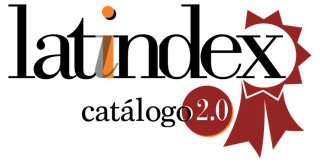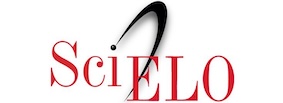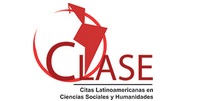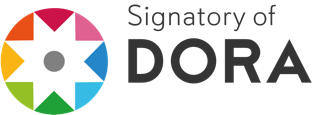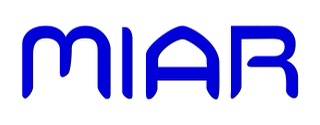Trabajo en equipo fuera del aula y su evaluación
DOI:
https://doi.org/10.32870/dse.v0i29.1401Resumen
El trabajo en equipo parece ser una de las técnicas más adecuadas para adaptarse a todos los cambios que se han producido en el currículo de idiomas ya que encierra varios beneficios tanto para los aprendientes como para los profesores. Sin embargo, los docentes encuentran muchos obstáculos cuando intentan evaluar este proceso cuando ocurre fuera del aula. Este artículo explora las opiniones de los profesores de idiomas sobre el uso del trabajo en equipo fuera del aula en las universidades mexicanas. El estudio también indaga sobre las técnicas de evaluación utilizadas por los docentes y la complejidad de este proceso. Se entrevistó a siete docentes de las licenciaturas en Enseñanza del Idioma Inglés de diferentes universidades estatales mexicanas. El diseño de investigación fue cualitativo basado en un protocolo de entrevista semiestructurada. Según el discurso de los docentes, se puede observar que éstos no son coherentes con los resultados del trabajo en grupo y al final prefieren evaluar a los estudiantes individualmente como consecuencia de los estudiantes que prefieren trabajar de manera independiente en los grupos. Además, faltan criterios para evaluar el desempeño.Descargas
Citas
Britton, E.; N. Simper; A. Leger; J. Stephenson (2017). Assessing teamwork in undergraduate education: a measurement tool to evaluate individual teamwork skills. Assessment and evaluation in higher education, 42(3), 378-397. 10.1080/02602938.2015.1116497
Brookhart, S. (2018). Appropriate criteria: key to effective rubrics. In Frontiers in Education, 3, 22.
Claxton, G.; G. Wells (2002). Learning for life in the 21st Century. Malden: Blackwell publishing.
Cohen, E.; A. Lotan (2104). Designing Groupwork: Strategies for the Heterogeneous Classroom. Columbia: Teachers College Press.
Corbin, J.; A. Strauss (2014). Basics of qualitative research: Techniques and procedures for developing grounded theory. Thousand Oaks: Sage publications.
Creswell, J. (1994). Research Design: Qualitative and Quantitative Approaches. Thousand Oaks: Sage publications.
Davies, M. (2009). Groupwork as a form of assessment: common problems and recommended solutions. Higher Education, 58, 563-584. https://doi.org/10.1007/s10734-009-9216-y
Denzin, N.; Y. Lincoln (1995). Transforming qualitative research methods: Is it a revolution? Journal of Contemporary Ethnography, 24(3), 349-358. https://doi.org/10.1177/089124195024003006
Dörnyei, Z. (2007). Research methods in applied linguistics. Oxford: Oxford University Press.
Ferdous, T.; A. Karim (2019). Working in Groups outside the Classroom: Affective Challenges and Probable Solutions. International Journal of Instruction, 12(3), 341-358. https://doi.org/10.29333/iji.2019.12321a
Glackin M. (2018). ‘Control must be maintained’: exploring teachers’ pedagogical practice outside the classroom. British Journal of Sociology of Education, 39(1), 61-76. 10.1080/01425692.2017.1304204
Good, T. (1981). Teacher expectations and student perceptions: a decade of research. Educational Leadership, 38, 415-23. https://www.researchgate.net/profile/Thomas-Good-2/publication/234557415_Teacher_Expectations_and_Student_Perceptions_A_Decade_of_Research/links/5dae35034585155e27f7a1e0/Teacher-Expectations-and-Student-Perceptions-A-Decade-of-Research.pdf
Ha, L.; J. Jeroen; W. Theo (2018). Collaborative learning practices: teacher and student perceived obstacles to effective student collaboration. Cambridge Journal of Education, 48(1), 103-122. 10.1080/0305764X.2016.1259389
Hansen, R. (2006). Benefits and problems with student teams: Suggestions for improving team projects. Journal of Education for Business, 82(1), 11-19. https://doi.org/10.3200/JOEB.82.1.11-19
Hassanien, A. (2006). Student Experience of Group Work and Group Assessment in Higher Education. Journal of Teaching in Travel & Tourism, 6(1), 17-39. 10.1300/J172v06n01_02
Jacques, D. (2001). Learning in groups: A handbook for improving group work. London: Psicology Prees
Jarvis, P. (2004). The Theory and Practice of Teaching. UK: Routledge Falmer Taylor & Francis Group.
Johnson, D.; F. Johnson (1999). Making cooperative learning work. Theory into Practice, 38(2), 67-73. https://www.researchgate.net/publication/243775553_Making_cooperative_learning_work
Johnson, D.; F. Johnson (2013). Joining together: Group theory and group skills. 11th ed. Boston: Allyn and Bacon.
Kaplan, A. (2017). Lifelong learning: conclusions from a literature review. International Online Journal of Primary Education (IOJPE), 5(2), 43-50. https://www.iojpe.org/index.php/iojpe/article/view/91/95
Lillo, F. (2013). Aprendizaje colaborativo en la formación universitaria de pregrado [Collaborative learning in undergraduate university education]. Revista de Psicología UVM, 2(4), 109-142. https://repositorio.uvm.cl/server/api/core/bitstreams/d944ef1f-efba-4dd8-af28-cd4121e35644/content
Nunan, D. (1992). Research Methods in Language Learning. Cambridge: Cambridge University Press.
Nunan, D (1992). Collaborative Language Learning and Teaching. Cambridge: Cambridge University Press.
Orr, S. (2010). Collaborating or fighting for the marks? Students’ experiences of group work assessment in the creative arts. Assessment and evaluation in higher education. 10.1080/02602931003632357
Rea-Dickins, P.; K. Germaine (2001). Innovation in English Language Teaching. Routledge: London and New York in association with Macquarie University and the Open University.
Rezaei, A. (2018). Effective Groupwork Strategies: Faculty and Students' Perspectives. Journal of Education and Learning, 7(5), 1-10. 10.5539/jel.v7n5p1
Ruiz-Esparza, E.; C. Medrano; J. Zepeda (2016). Exploring University Teacher Perceptions About Out-of-Class Teamwork. Profile Issues in Teachers’ Professional Development, 18(2), 29-45. http://dx.doi.org/10.15446/profile.v18n2.53364
Underhill A. (1992). The Role of groups in developing teacher self-awareness. ELT Journal 46(1), 71-80. https://doi.org/10.1093/elt/46.1.71
Descargas
Publicado
Número
Sección
Licencia
Esta obra está bajo una licencia internacional Creative Commons Atribución-NoComercial 4.0.
Una vez que los manuscritos son aceptados por los evaluadores para ser publicados, los autores deberán de suscribir una carta de cesión de derechos en favor de la Universidad de Guadalajara para la edición, publicación y difusión de su obra. Ya que sea notificada la publicación de su manuscrito, el editor de la revista le enviará un correo electrónico con el formato de la carta de cesión de derechos.




